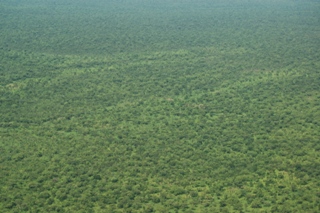South Sudan bans exportation of charcoal, wood
July 4, 2018 (JUBA) – The South Sudanese government has announced a ban on wood and charcoal exportation, arguing that the practice has negatively impacted on the country’s environment.

“A lot of people are engaged illegally in cutting of trees for the purposes of producing charcoal for export,” Tiel told reporters in the country’s capital, Juba.
The new move, according to the minister, follows the massive destruction of forests in the country, instructing all environment agencies and other departments to ensure the ban is implemented.
“We urge our citizens and those who are engaged in those kinds of activities to stop doing that,” further stressed the minister, adding “Our citizens should look for new ways of cooking our food”.
South Sudan has no forestry policy and its authorities are worried they could lose the country’s tropical forests, unless stringent measures are put in place to curb rampant rates of illegal logging.
The world’s youngest nation faces a civil war and while its population grapples with hunger, they are also experiencing the devastating effects of climate change, partly blamed by officials on the conflict.
In South Sudan, the deforestation is compounded by an increase in illegal exports of wood and charcoal largely by foreign companies.
But, while up to 95 percent of South Sudan’s population is dependent on climate-sensitive activities like agriculture and forestry for their livelihoods, the ongoing civil war worsens the problem.
South Sudan is currently embroiled in a conflict that has killed tens of thousands of the population, displacing nearly two million of them.
Last year, officials from Wildlife Conservation Society (WCS) warned of dangers as the country’s wildlife and natural resources faced alarming expansion of illegal exploitation, trafficking and logging.
(ST)
